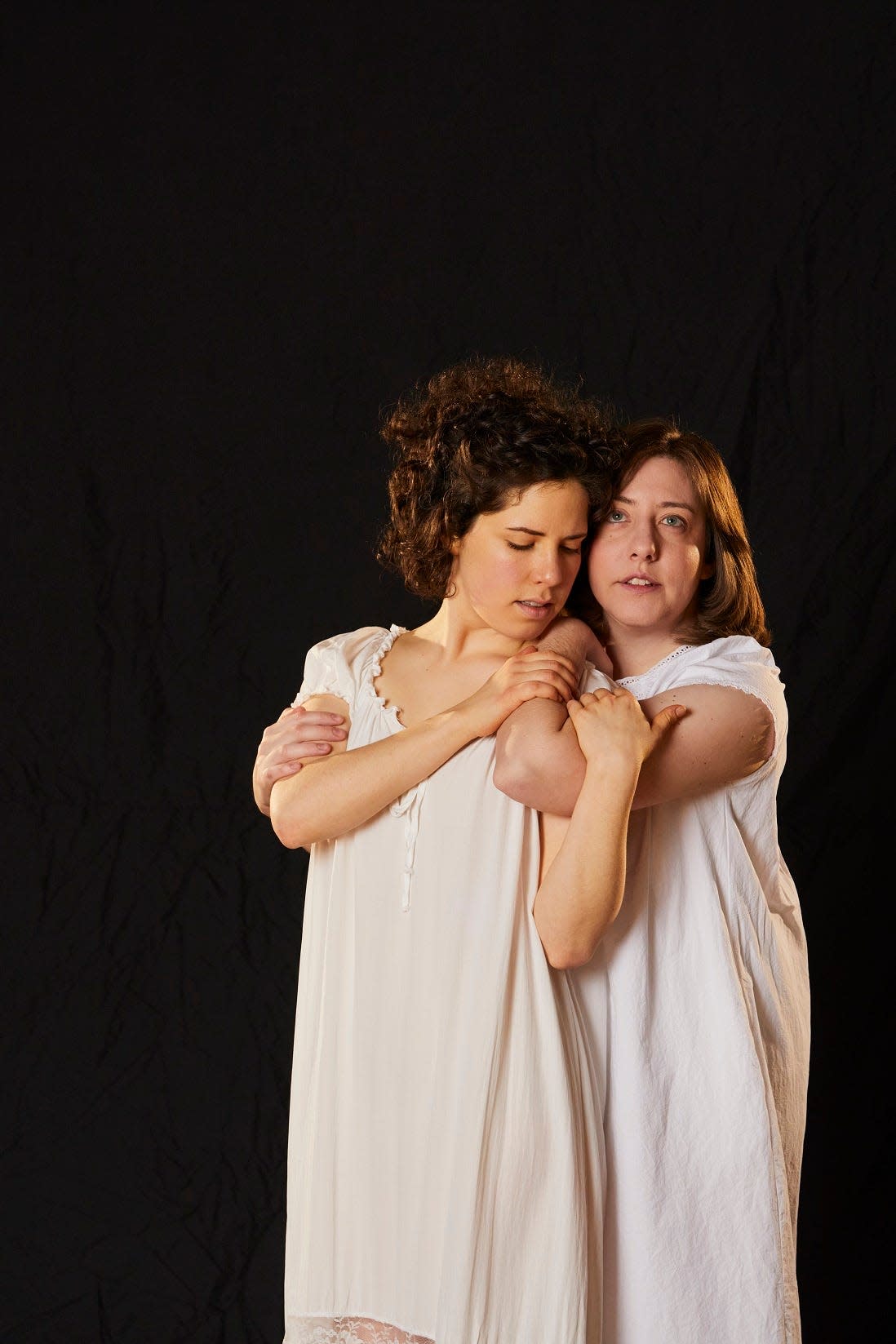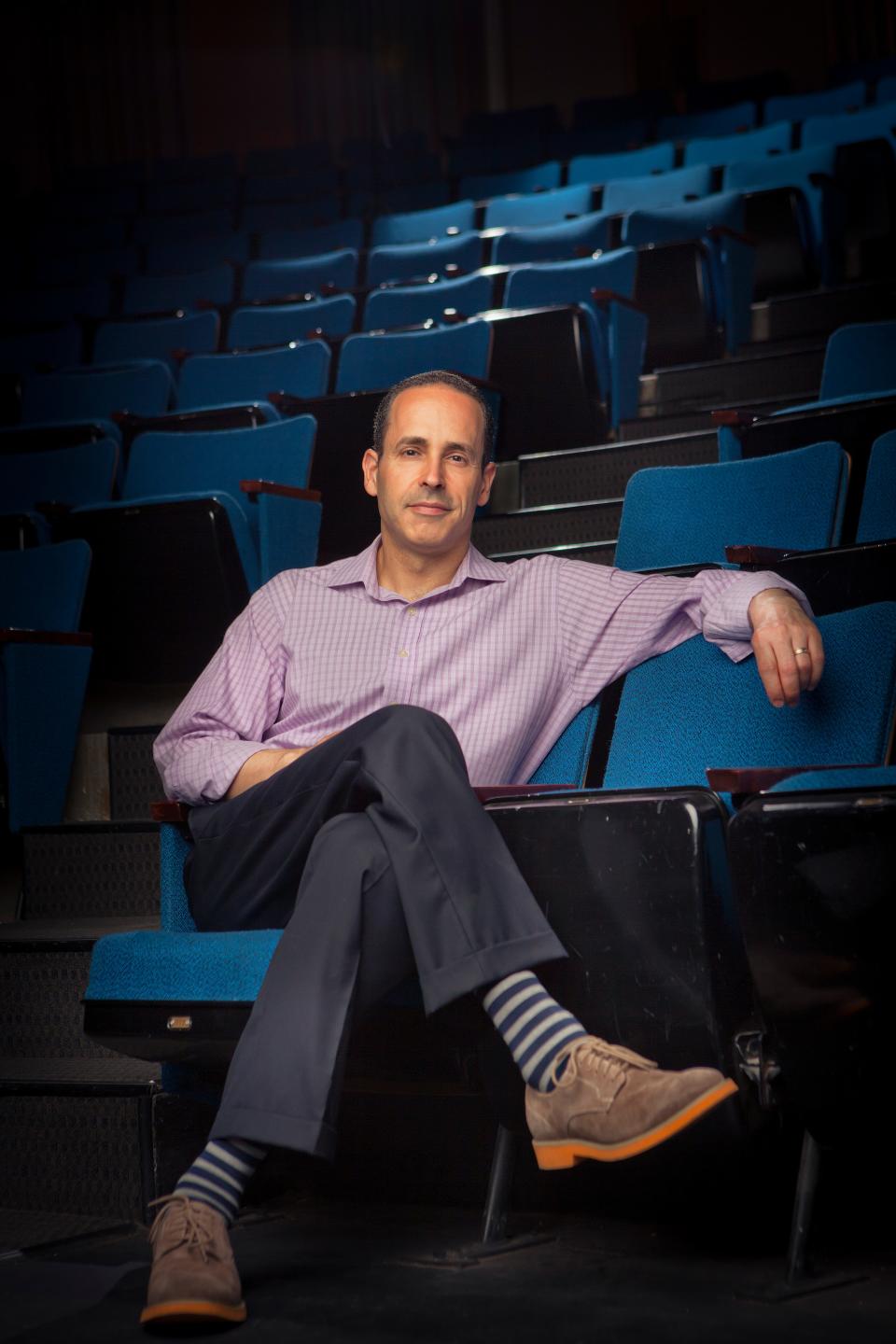A UWM scholar is lending his Yiddish expertise to the provocative drama 'Indecent' at Milwaukee Chamber Theatre

Paula Vogel's drama "Indecent" embodies a heated argument familiar to anyone who studies theater or literature.
"Why must every Jew onstage be a paragon?" asks a playwright who's just written a provocative work.
"This is a play written by a Jew who hates Jews," says a respondent who didn't enjoy the provocation.
But "Indecent," fashioned from the bones of a Yiddish theater classic, is also full of love stories: the love two women share, the love of a simple tailor for a life in theater, and the love of a people for the language they brought from the shtetls of eastern Europe to cities around the world.
Milwaukee Chamber Theatre begins performing "Indecent" March 11.
"Indecent" dramatizes the saga of "God of Vengeance" ("Got fun nekome"), Sholem Asch's 1907 landmark Yiddish theater play. In Asch's drama, a Polish Jewish father who makes a living from the brothel in his basement wants to marry his virgin daughter to a pious Jewish groom. The father even commissions a Torah scroll, which he places in the daughter's room as a form of protection. But she has fallen in love with one of the prostitutes downstairs.
Both a gentle love scene between the women and the father's explosive confrontation with his daughter recur in "Indecent," as the audience sees actors perform it in a salon and then Europe before it arrives in New York. After "God of Vengeance" opened on Broadway in 1923, cast members and the producer were arrested for "participating in an obscene, indecent, immoral, and impure drama or play," resulting in a trial, convictions and eventual successful overturn on appeal.
Any marginalized group — Jews, Blacks, Asian Americans, LGBT people — has internal discussions like the ones in "Indecent," said Joel Berkowitz, director for the Center for Jewish Studies at UWM. A scholar of Yiddish theater, Berkowitz is serving as dramaturg for Milwaukee Chamber's production, advising on cultural and literary points.
"Look, it's one thing for us to have these discussions in-house," Berkowitz said in summarizing in-group opposition to putting troubling behavior onstage. But opponents of such literary frankness worry that "it's going to get misused if it leaves this room," giving ammunition to our enemies, he said.

But "Indecent" is more than a debate about artistic norms and transgressions. For one, it's a fast-moving acting challenge, with Chamber's actors transitioning rapidly in scenes from playing characters to playing actors playing characters. Musicians Lodewijk Broekhuizen, Jason Gresl and Christie Chiles Twillie serve as the onstage klezmer band, playing thematic music including Yiddish musical theater's worldwide hit, "Bei Mir Bist Du Schön."
And while it is performed in English, "Indecent" is frequently punctuated with Yiddish, the language spoken by millions of Ashkenazi Jews before the Holocaust and still spoken today.
As someone who works on Yiddish theater and culture, Berkowitz loves that "Indecent" pays homage to the language and the world it was embedded in.
His father was born to Polish Jewish refugees who ultimately made their way to the U.S., so Yiddish was in his background. But he truly embraced it in graduate school while working on his doctorate in theater. When he took a month intensive program in Yiddish, "it was like falling in love … you're a bit gaga," he said. His infatuation deepened into further study, a doctoral dissertation (and first book) on Shakespeare on the American Yiddish stage, and co-founding the Digital Yiddish Theatre Project, which is hosted by UWM.
Berkowitz was Yiddish consultant for four previous productions of "Indecent," including its premiere at Yale Repertory Theater.
"Indecent" touches on "how vitally important Yiddish theater was to millions of Yiddish speakers" not only in eastern Europe, but also in other parts of Europe, the U.S. and Canada, and elsewhere, he said.
A common misconception is that Yiddish has had its time and that's past, Berkowitz noted. "There's so many reasons sort of to challenge that thinking," he said. He finds the persistence of "Vengeance of God" to be a "beautiful and powerful" demonstration of the Yiddish metaphor of di goldene keyt, the golden chain of Jewish tradition continuing from one generation to the next.
"Certainly 'Indecent' serves to bring awareness of ("God of Vengeance") to a whole new audience," Berkowitz said. But even apart from "Indecent," the earlier play has had striking, modern Israeli and Polish productions. "Like any classic play, they find different ways to tell the story," he said.
Contact Jim Higgins at jim.higgins@jrn.com. Follow him on Twitter at @jhiggy.
if you go
Milwaukee Chamber Theatre performs "Indecent" March 11-27 at the Broadway Theatre Center, 158 N. Broadway. For tickets, visit www.milwaukeechambertheatre.org or call (414) 291-7800. Proof of vaccination or a recent negative COVID-19 test required. Masks required.
Our subscribers make this reporting possible. Please consider supporting local journalism by subscribing to the Journal Sentinel at jsonline.com/deal.
DOWNLOAD THE APP: Get the latest news, sports and more
This article originally appeared on Milwaukee Journal Sentinel: UWM scholar lends Yiddish expertise to provocative drama 'Indecent'
